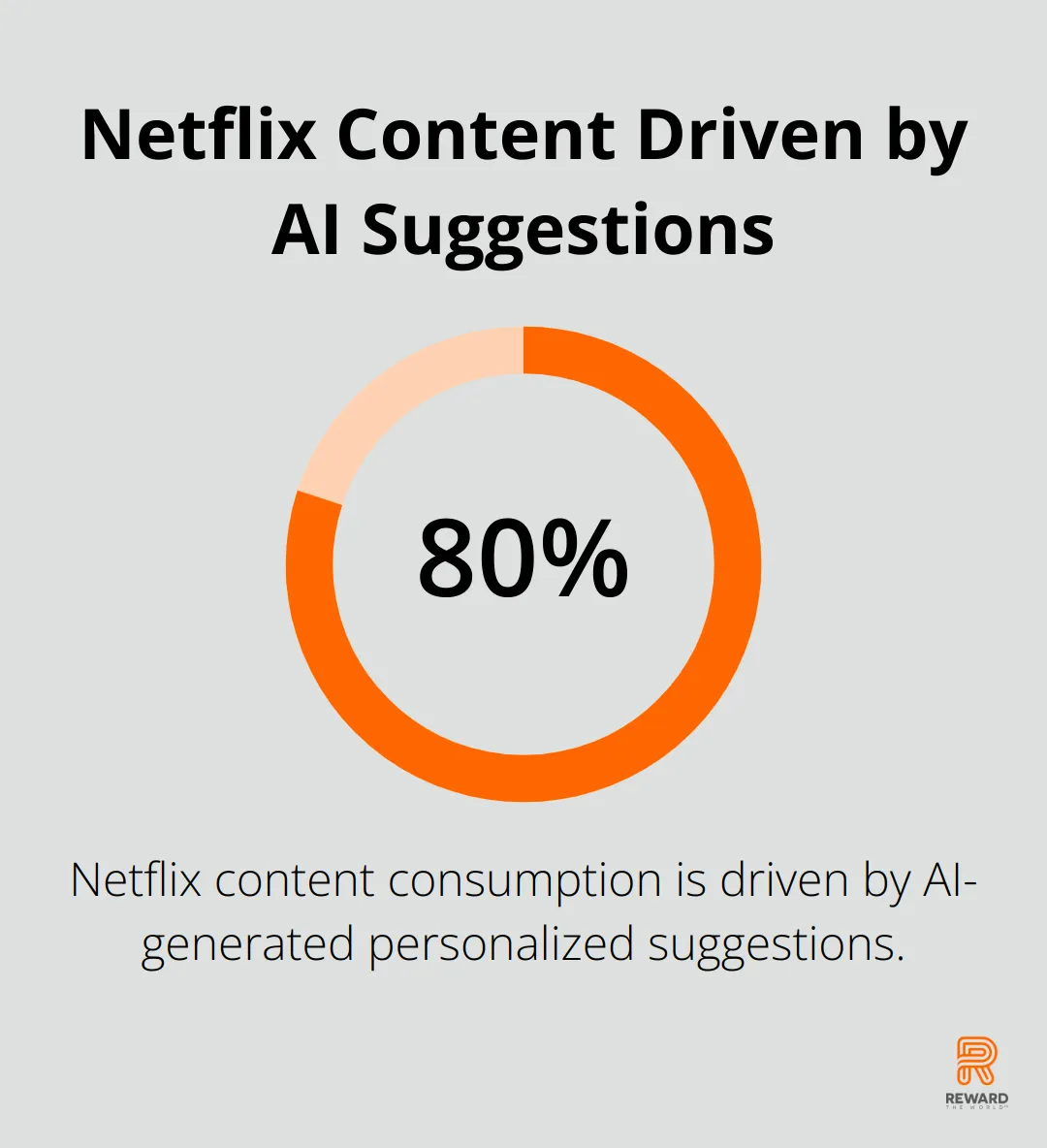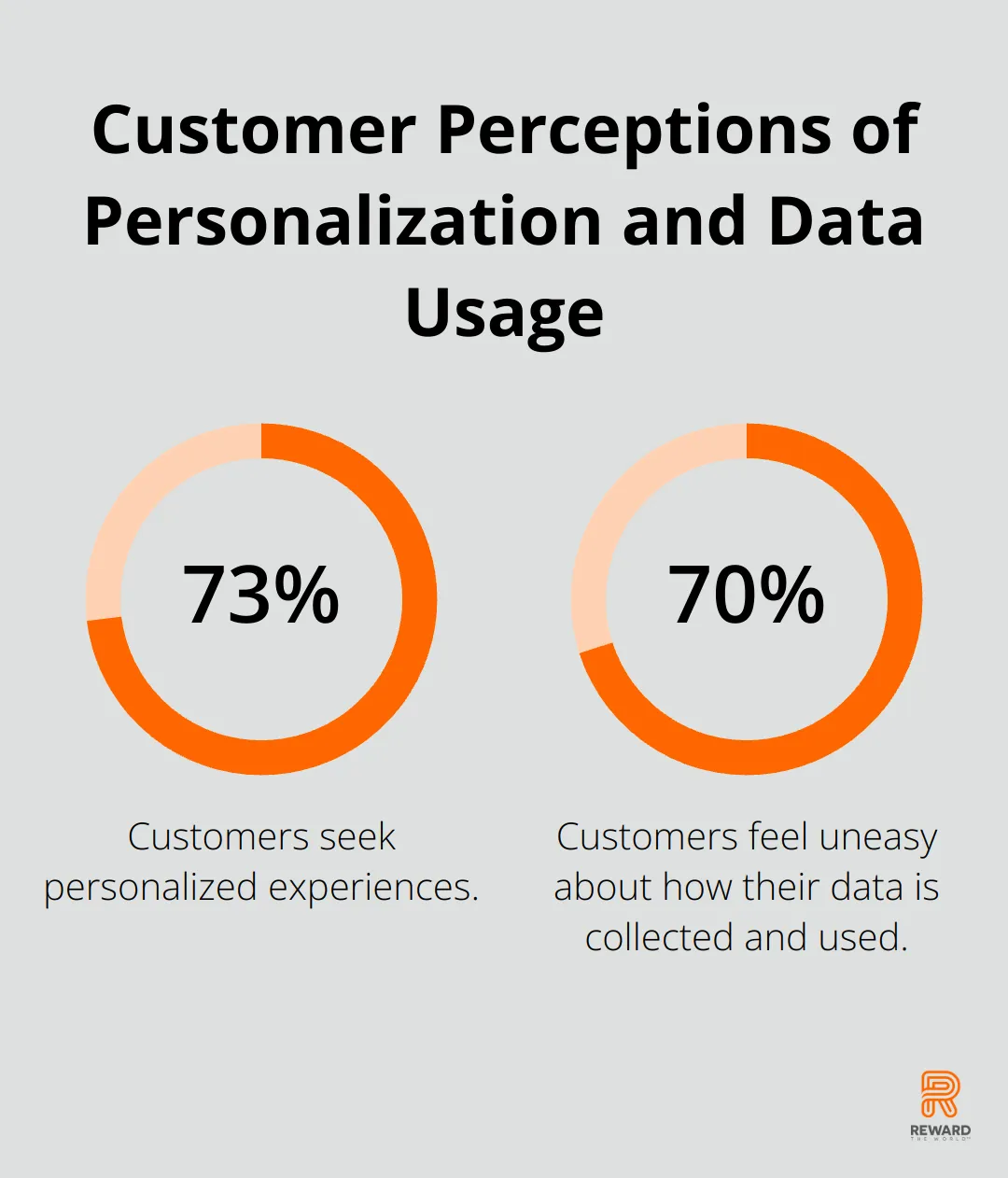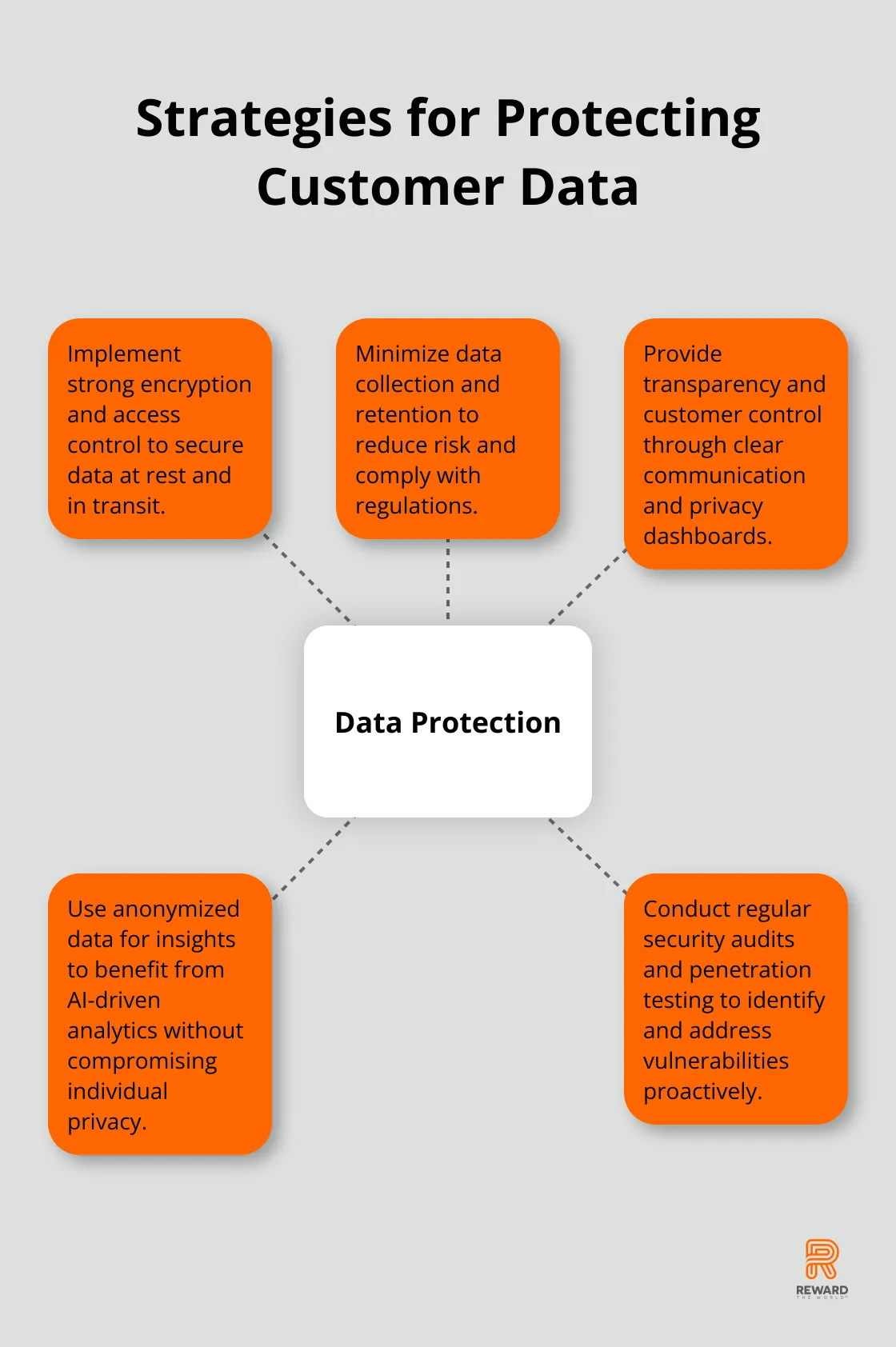
AI-driven loyalty programs are revolutionizing customer retention strategies. These programs offer personalized experiences that keep customers coming back, but they also raise important questions about privacy and data protection.
At Reward the World, we believe that striking the right balance between personalization and privacy is key to building trust and long-term customer relationships. This blog post explores the challenges and opportunities of AI-driven loyalty programs, with a focus on AI ethics and practical strategies for protecting customer data.
How AI Transforms Loyalty Programs
The Evolution of Loyalty Programs
Traditional loyalty programs once relied on simple point systems or tiered rewards. AI now analyzes vast amounts of data to create hyper-personalized experiences. According to a 2024 Deloitte Digital report, more than 80% of brands anticipated offering personalized rewards through their loyalty programs, primarily driven by consumer demand.
AI’s Impact on Personalization
AI algorithms predict customer preferences with remarkable accuracy. Netflix attributes 80% of its content consumption to AI-generated personalized suggestions. This level of personalization keeps customers engaged and returning for more.

Customer Retention Boost
AI-driven loyalty programs significantly impact customer retention. A McKinsey study found that 75% of top-performing loyalty program members change their behavior to provide greater value to businesses. This demonstrates AI’s power in creating meaningful, long-lasting customer relationships.
Real-Time Engagement
A completely revamped and powerful new product for building and running highly interactive, enterprise-grade AI agents in just a few keystrokes allows for real-time customer insights and personalized interactions. This is crucial in today’s fast-paced retail environment. For instance, edge AI monitors in-store inventory levels and customer behavior, automatically triggering stock alerts to enhance customer experience.
The Future of Customer Engagement
AI-driven loyalty programs represent the future of customer engagement. These programs create more meaningful, personalized experiences that drive long-term loyalty and growth. As businesses continue to adopt AI technologies, we expect to see even more innovative approaches to customer retention and engagement.
The power of AI in loyalty programs is undeniable, but it also raises important questions about data privacy and protection. In the next section, we’ll explore these concerns and discuss strategies for maintaining customer trust while leveraging AI’s capabilities.
The Hidden Costs of AI-Driven Loyalty
AI-driven loyalty programs offer unprecedented personalization, but they come with significant privacy concerns. These issues can erode customer trust and potentially lead to severe consequences for businesses.
The Data Dilemma
AI-driven loyalty programs collect vast amounts of customer data. Traditional AI for personalization relies on sending customer data to central servers for analysis. This can be slow, inefficient, and raise privacy concerns. While this data powers personalization, it also creates a massive target for cybercriminals. In 2022, T-Mobile suffered a data breach affecting 37 million customers (highlighting the vulnerability of large customer databases).
The Threat Landscape
Data breaches in loyalty programs are not hypothetical. In 2018, Marriott International faced a breach affecting 500 million guests in its Starwood loyalty program. The United Kingdom’s Information Commissioner’s Office (ICO) fined Marriott £18.4 million for the breach, citing General Data Protection Regulation article 32. This case underscores the financial and reputational risks businesses face when customer data is compromised.
Eroding Customer Confidence
Customer perceptions of AI-driven loyalty programs are mixed. While 73% of customers seek personalized experiences, 70% feel uneasy about how their data is collected and used, according to a 2023 Adobe study. This paradox presents a challenge for businesses implementing AI loyalty solutions.

Prioritizing Data Protection
Companies must prioritize transparency and data protection to address these concerns. Implementing robust encryption, regular security audits, and clear opt-in/opt-out mechanisms are essential. Additionally, businesses should consider using federated learning techniques, which allow AI models to learn from decentralized data without compromising individual privacy.
The Path Forward
The challenges of AI-driven loyalty programs are significant, but not insurmountable. Companies that prioritize data protection and transparency can reap the benefits of personalization while maintaining customer trust. The next section will explore specific strategies for striking this delicate balance.
How Businesses Can Protect Customer Data
Implement Strong Encryption and Access Control
Businesses must use advanced encryption standards (AES) with 256-bit keys to protect data at rest and in transit. This level of encryption enables organizations to securely transmit information as a ciphertext. Strict access controls ensure that only authorized personnel can access sensitive information on a need-to-know basis.
Minimize Data Collection and Retention
Companies should collect only essential data and implement strict retention policies to reduce risk. Regular audits of data collection practices help identify and purge unnecessary information. For example, if a customer hasn’t engaged with a loyalty program in 18 months, the company should consider anonymizing or deleting their data.
Provide Transparency and Customer Control
Clear communication about data usage builds trust. Companies should create a user-friendly privacy dashboard where customers can view and manage their data preferences. This approach aligns with regulations like GDPR and CCPA (which mandate user control over personal data). A recent study found that 79% of customers are more likely to trust companies that clearly explain data usage.
Use Anonymized Data for Insights
Businesses can benefit from AI-driven analytics without compromising individual privacy by utilizing anonymized and aggregated data for insights. Techniques like differential privacy involve employing various techniques to obscure individual data points or attributes within a dataset to protect privacy. Google’s RAPPOR (Randomized Aggregatable Privacy-Preserving Ordinal Response) exemplifies this approach, enabling the collection of statistics on client-side data without revealing individual user information.
Conduct Regular Security Audits
Companies should perform regular security audits and penetration testing to identify and address vulnerabilities before exploitation. Quarterly internal audits and annual third-party penetration tests help ensure the highest level of security. These proactive measures (combined with the strategies mentioned above) allow businesses to harness the power of AI-driven personalization while maintaining robust data protection standards.

Final Thoughts
AI-driven loyalty programs offer unparalleled personalization but face significant privacy challenges. Businesses must prioritize data protection, transparency, and customer control to build trust and maintain loyalty. The future of these programs looks promising, with edge computing and federated learning enhancing personalization while protecting privacy.
AI ethics will shape the future of loyalty programs as technologies evolve. Companies must address ethical concerns and ensure fair treatment of all customers. Implementing robust encryption, minimizing data collection, and regularly auditing security practices are essential steps for businesses.
Reward the World understands the complexities of balancing personalization and privacy in loyalty programs. Our platform offers a solution for businesses to enhance customer engagement while maintaining high standards of data protection (and ethical AI use). With our globally accessible rewards system, companies can implement AI-driven loyalty programs that respect customer privacy and drive long-term success.
